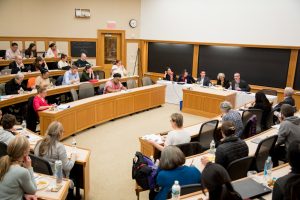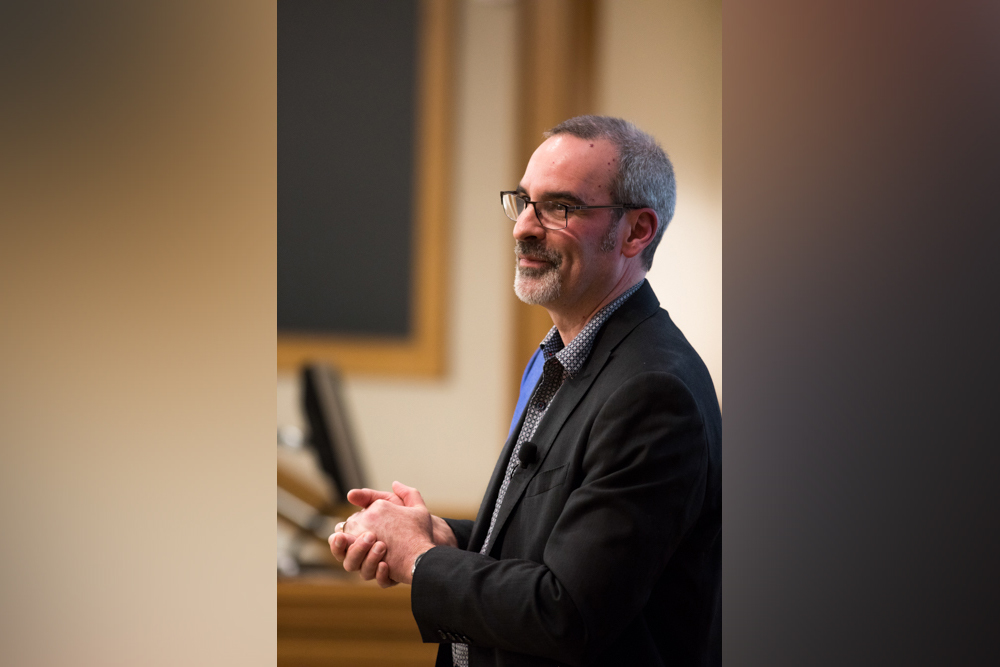Professor Carl Stauffer, co-director of the Zehr Institute for Restorative Justice at Eastern Mennonite University’s Center for Justice and Peacebuilding, offered a keynote address at a restorative justice symposium at Harvard University in February.

The annual symposium, planned by Harvard law students with the Harvard Negotiation Law Review, is sponsored by Harvard Law School’s program on negotiation. The 2019 theme was “Redressing Harm Through Restorative Justice.”
Read Harvard Law’s event coverage.
“It’s encouraging to see law students wanting to put restorative justice at the center of this discussion around redressing harm, and exploring alternatives to how criminal and transitional law could be practiced in the future,” Stauffer said.
This was his second time at the event. In 2015, he participated as a panelist on transitional justice.
In his keynote, Stauffer discussed transitional and transformative critiques of the restorative justice field.
From the transitional justice frame, he suggested “the need for decolonization of the global justice fraternity and the call for ground-up formations of justice that transform historical harms and cultural hegemony. To accomplish sustainable ‘war-to-peace’ transitions, mechanisms for participatory truth-telling, political narrative reconstruction, social power relations and economic redistribution, reparations, and collective healing must be enabled.”
From the transformative justice frame, drawing from critical race theory and anti-oppression practice, Stauffer highlighted the critique as “the need for holding together relational and structural transformation at all levels of society with an equal emphasis on the ‘safety’ of those most affected by personal and structural violence, and ‘accountability’ for those causing the harm. This process requires that we ‘center’ the voice of the harmed, and build up the assets and resources of the community to change oppressive structures in order to prevent future harm and to establish a healing justice at the local, contextual level.”
Stauffer also moderated a panel on the integration of restorative justice in the U.S. criminal context, with Erin Freeborn, executive director of Communities for Restorative Justice (C4RJ); Kaia Stern, co-founder and director of the Prison Studies Project; Pierre Berastain, director of Harvard University’s Office of Sexual Assault Prevention and Response; and Chris Moser, Of Counsel to Henrichsen Siegel.

It is exciting to hear of your interaction with these upcoming attorneys, Carl.
Professor Stauffer is a great educationist and practitioner in peace and restorative justice.
The inside-out approach to peacebuilding and transformative justice is what the world needs most at this period in time.